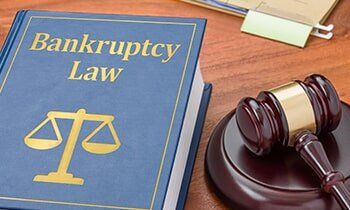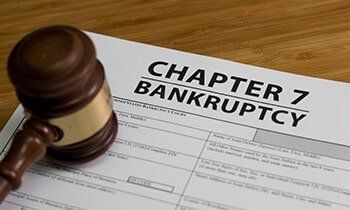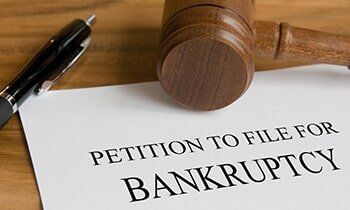BANKRUPTCY ATTORNEYS IN DUBUQUE, IA
This informational knowledge on bankruptcy is intended for the explicit use of clients of Alliance Law Firm. This document was created with the sole purpose of providing clients with common knowledge regarding bankruptcy. Use or reproduction of this document by permission.
INTRODUCTION
Filing bankruptcy can be a very stressful time for any individual(s) or business. However, a majority of the stress and worries result from the misunderstanding of the paperwork involved. This informational guide will hopefully ease some of your stress by explaining the bankruptcy process and some general questions regarding the process. Congress recently completed an extensive re-writing of the bankruptcy laws which went into effect October 17, 2005, called the Bankruptcy Abuse Prevention and Consumer Protection Act of 2005. A great deal of mis-information has been disseminated about this law. In particular, mis-information to the effect that the law makes many individuals ineligible to file bankruptcy. This is not correct, although the new law does impose some additional requirements for filing. With that said, this informational guide should only be used as a background for questions that may arise during your bankruptcy process.
Starting the Bankruptcy Process
To begin a bankruptcy, you will be asked to fill out a questionnaire. This questionnaire asks for some general information such as name, address, social security number, etc. You will also be asked to list all assets and debts. It is extremely important that this questionnaire be filled out completely and as accurately as possible. After talking to an attorney over the phone, this questionnaire is usually sent out to the client(s) with instructions to fill out the questionnaire and then make an appointment with the attorney. To make the initial meeting much more efficient, PLEASE take the time to fill out the questionnaire as accurately, thoroughly and completely as possible. This will take some time. Taking the time to accurately answer all questions will help your bankruptcy process move more efficiently.
Bankruptcy laws were adopted in the United States to protect the debtor(s) from the onslaught of multiple collection attempts and to enable debtors to get a fresh start. Depending upon the circumstances, your bankruptcy may be filed in a federal court under different categories known as chapters. Each chapter varies on the amount of relief that the court can grant. Listed on the next page is a brief description of each chapter that bankruptcy can be filed under.
Chapter 7
Filing a bankruptcy under this chapter is the most common for individuals. Upon the court issuing an order restraining creditors from contacting you about previous debts, a Trustee will be appointed to sell any property of yours that is not exempt.
Chapter 11
Filing a bankruptcy under this chapter is most common for businesses, but once in a while, an individual debtor will file under chapter 11. Regular operations continue and the debtor is allowed to keep most, if not all, of the property. During a chapter 11 bankruptcy, the debtor and the creditors negotiate a plan for the payment of debts. The cost of reorganizing a business, and the numerous mailings, hearings, and negotiations, is higher than in a chapter 7 filing.
Chapter 12
Chapter 12 is strictly for those individual debtors involved with agriculture, i.e. farmers. Filing under chapter 12 is much like a chapter 13 (listed below), however due to the fact that capital equipment in agriculture is much more expensive, the guidelines for some debt limits are much higher.
Chapter 13
Under chapter 13 guidelines, individual debtors are allowed to retain almost all of their property through a propose payment plan between the debtors and creditors. This payment plan is over 5 years. The individual debtors make payments to a Trustee on a regular basis, who then distributes the payments to the creditors.
COMMON MYTHS ABOUT BANKRUPTCY
MYTH # 1:The new bankruptcy law places many new restrictions on who is eligible to file bankruptcy.
FACT:
The new bankruptcy law contains a “means test” which is used to determine who is eligible to file bankruptcy. Basically, a debtors income is reviewed to determine what types of bankruptcy debtors will be eligible to file. The means test was intended to force more debtors into filing Chapter 13 instead of Chapter7. However, it is estimated that most debtors who would have been eligible to file Chapter 7 under the prior law will be eligible to do so under the new law.
MYTH #2: If I file chapter 7 bankruptcy, the court will take everything that I own in order to pay the creditors.
FACT: Chapter 7 bankruptcy allows you to keep all of your exempt property. Each state varies on the exact items and value of property that may be claimed as exempt. Property that is subject to a properly perfected security agreement, such as a mortgage or a security agreement cannot be kept unless the debt is reaffirmed.
MYTH #3:Under the new bankruptcy law I will not be able to file on my credit card debts.
FACT: Credit card debts can be filed on and discharged under the new bankruptcy law. The new law will require you to go through additional steps to file and that the new law takes out some of the classes (clauses) that used to exist under the old law. For most people, there is no difference between what is permitted under the old law and the new law.
MYTH #4: Filing a chapter 7 bankruptcy will automatically erase my debt.
FACT: Certain types of debts cannot be discharged or eliminated by filing bankruptcy. Four most common items that bankruptcy will not discharge or bar collection activities on include:
1. Criminal restitution and fines
2. Child support or alimony
3. Recent taxes owed to the state and federal government
4. Student loans
The court may also decide that other kinds of debts such as those created through fraud, may not be discharged. Failure to obey court orders, missing hearings, and or making false statements on your petition and schedules also may impact what type of debts the court allows to be discharged.
MYTH #5: By filing a bankruptcy, I will never be able to get credit again!
FACT: Depending on the type of lending agency, standards of giving credit greatly vary. Some lending agencies may look at your bankruptcy as a business opportunity and give you credit, since your debts have been discharged and you cannot file again for eight years. Other lending agencies tend not to give credit to bankruptcy filers. The majority of lending agencies fall somewhere in between for giving credit to those who have filed bankruptcy.
MYTH #6: I don't have to appear in court when filing a bankruptcy.
FACT: You will have to appear for a hearing called a “341" Meeting. This meeting usually lasts around 10 to 20 minutes. The purpose of the 341 Meeting is for the Trustee to determine if your bankruptcy petition is accurate and to determine if you have any non-exempt property available which could be used to pay creditors. The trustee conducts the meeting and creditors do not usually appear for consumer bankruptcies. YOU MUST PERSONALLY APPEAR AT THIS MEETING.
MYTH #7: As soon as I file bankruptcy, creditors will stop harassing me about my unpaid bills.
FACT: The initial filing prohibits creditors from contacting you. This ordinarily lasts until a discharge is granted. If there are no objections to your bankruptcy, this discharge is granted 60 days after the 341 Meeting. If a creditor does contact you after your filing, they will receive a notice to stop. If creditors continue to contact you after this first notice, sanctions can be ordered by the court. The creditors can be ordered to pay you for their harassment. After the discharge is entered, there is an injunction against creditors contacting you about any discharged debts.
Bankruptcy should not be looked at as a quick way out of your financial responsibilities. Only when it seems that there is no possible way that you can repay your financial debts, should you then seek to file bankruptcy. All other possible options should be examined before filing bankruptcy.
Alliance Law Firm is a debt relief agency.
We help people file bankruptcy.
Copyright (c) by Alliance Law Firm, All Rights Reserved.



